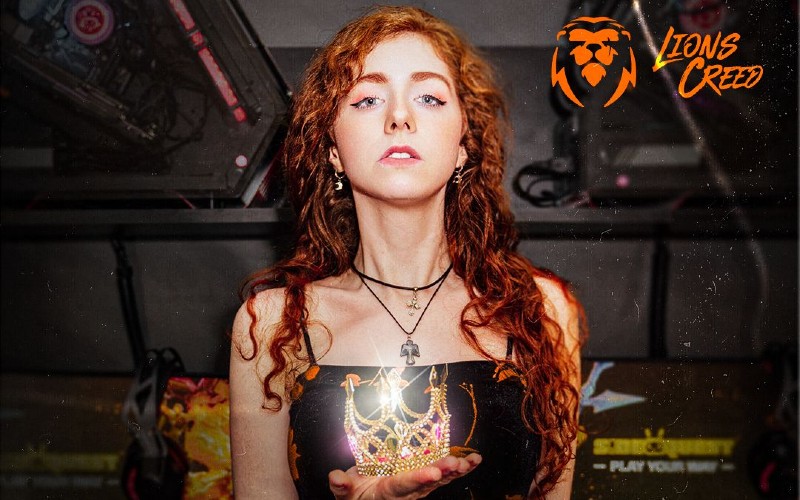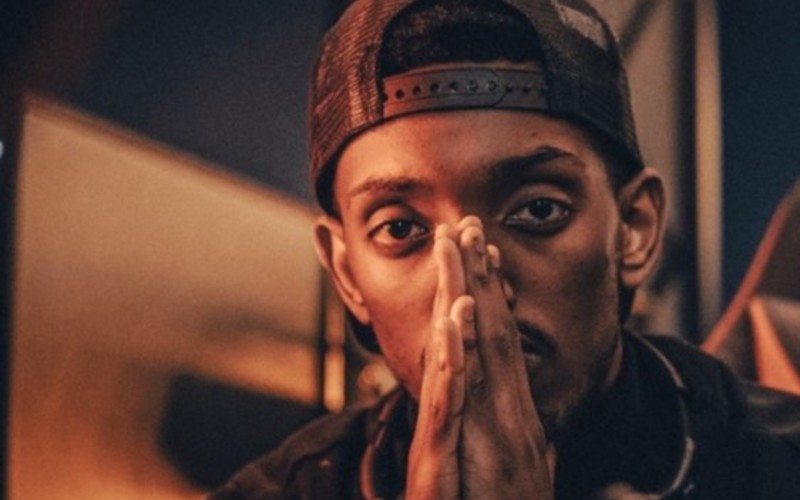Abdiqani Ahmed has a fire in his belly – the ambition to build one of the most successful eSports organisations in the world.
The founder and CEO of London-based Lionscreed has bootstrapped his business over the last three years to national success. He is now looking internationally.
Beneath the softly spoken exterior lies a steel forged in adversity. Abdi was just one and a half years of age when his mother was forced to flee war-torn Somalia with her baby, first to Glasgow then on to London.
“I didn’t speak a word of English,” he says of his first months in the capital. “My mum couldn’t read or write either, so she couldn’t help me with homework. She felt guilty… she worked two jobs so I could have extra tuition, go on camps, attend summer school.
“She told me: ‘You can’t fall behind. If you slip up, you can’t come home and ask me a question, because I don’t know what this is – so you need to be on top of it.’
“So early on, I had that mindset of ‘I need to be better than everyone else – because if I don’t, then I’m going to be in a s***ty situation’.”
I met Ahmed while attending the launch of HOST Salford’s gametech campus, where his eSports org has built a strategic partnership to establish a physical presence in the North of England.
Postcode wars
He also has his mother to thank for fighting to get him into secondary school in Chiswick and away from trouble on the streets of Acton, where they lived.
“Acton was a very, very rough area – there were postcode wars and things like that,” he says. “There were six of us (friends) – only me and one other person didn’t end up in Feltham [Young Offenders’ Institute].
“I was on the reserve list and she wouldn’t give up until she got me in.”
He continues: “I had to make a choice: to do something to keep me busy after school, like football, or go home and play games. Other than that the only option was the streets.
“As much as we are given mental deterrents [to behave], you’re gonna end up doing something you shouldn’t – you don’t even need to actually do anything if you are friends with a certain group of people. What else was I going to do? My mum would watch dramas on TV. I don’t like those dramas!
“The influence of your friends [in that situation] is really, really powerful. When they started smoking, I started smoking. We were underage, 15, and I don’t smoke at all now – but back then I was convinced to do that. What else could I have been influenced to do?
“So when people say you should [just not bow to pressure from your friends] they can’t speak about that – because they don’t know. Influence is different for each person and where you are at that moment.”
Breakthrough
Games have proven a welcome escape, and again it was his mother who made that possible despite their tight financial situation. “She worked so I could have a PlayStation, then a PlayStation 2… games were my relax.
“When I was in secondary school, the transition of people making careers out of games happened. And I was very, very good at games: by then I had an Xbox 360 and I was playing Call of Duty. There were American teams like OpTic and FaZe popping up at that time and they had huge YouTube hits. Me and my friends at school were just watching that.”
Ahmed says his skills were honed even earlier in fighting game tournaments with his cousins. “My family had a heritage of playing fighting games: we have a very big family. My mom has nine sisters and eight brothers! They would gather together with all of the kids – if you can imagine how many people that is in the same house…
“There would be one console, so we’d play these quick games – winner-stays-on kind of thing. I used to practise all day so when we had a family reunion, I could stay on and beat everyone!”
The first breakthrough came when, as a Year 11 student, he won £10,000 in a national tournament on League of Legends.
“A lot of people were moving from consoles to PCs at that time, but I didn’t have any PCs as they were relatively expensive,” he recounts. “The government then started giving out free laptops, and I received one because I was on benefits.
“It was really bad hardware – but I managed to win that money and it gave me access to becoming a semi-professional player.
“The money wasn’t important for me… the money was important for my family because I wasn’t just wasting time any more. It was an income. I think most kids quit [their eSports ambitions] because they can’t convince their parents.”

Birth of Lionscreed
Already set on a career in the fast-growing eSports scene, he completed his physics, mathematics and business A-levels in a single year so he could focus on gaming more quickly. After graduating from the University of Westminster with a degree in computer science and mathematics, he launched Lionscreed in 2019.
“I had three jobs – Wagamama’s, the Vue cinema and Lola’s cupcakes,” says Ahmed. “I would bring money home and literally invest it into the company.
“I would pay for the players, but everything else I would do myself. That’s how I did it for the first year. In the second year, we started getting a couple of sponsorships – but I had this mentality of: ‘It has to be perfection.’ So I was taking it very, very, very slow. Every competition that we played in, we were top three.”
Maplin’s
Even an early sponsorship deal resulted in a knockback. “Maplin’s were one of the first to sponsor me – and then in the same month, they went under! So I went from the buzz of someone saying ‘yes’, then reading that they’d gone bust and not hearing from them again.”
The startup has grown to 28 staff. There are more than 15 players on its books, but also a sports and exercise psychologist, multiple social media managers, marketing experts and now content creators P3nguin & Burtle.
“I’m 100% on things. I’m 25 and I can’t drive!” admits Ahmed. “There’s a lot of things that I’ve just missed out on because of that. I’ve only just started becoming more social as well, because my team has been pushing me to do more interviews.
“While I was grafting and grinding, I lost a lot of things that could have been personal development. My fashion sense… I’d just wear something, anything! Most people go out with their friends but I used to go out like maybe 10 times a year.
“But even if my company were to cease to exist for some reason, I feel that I can now create anything – just from being deep in every single department.”

